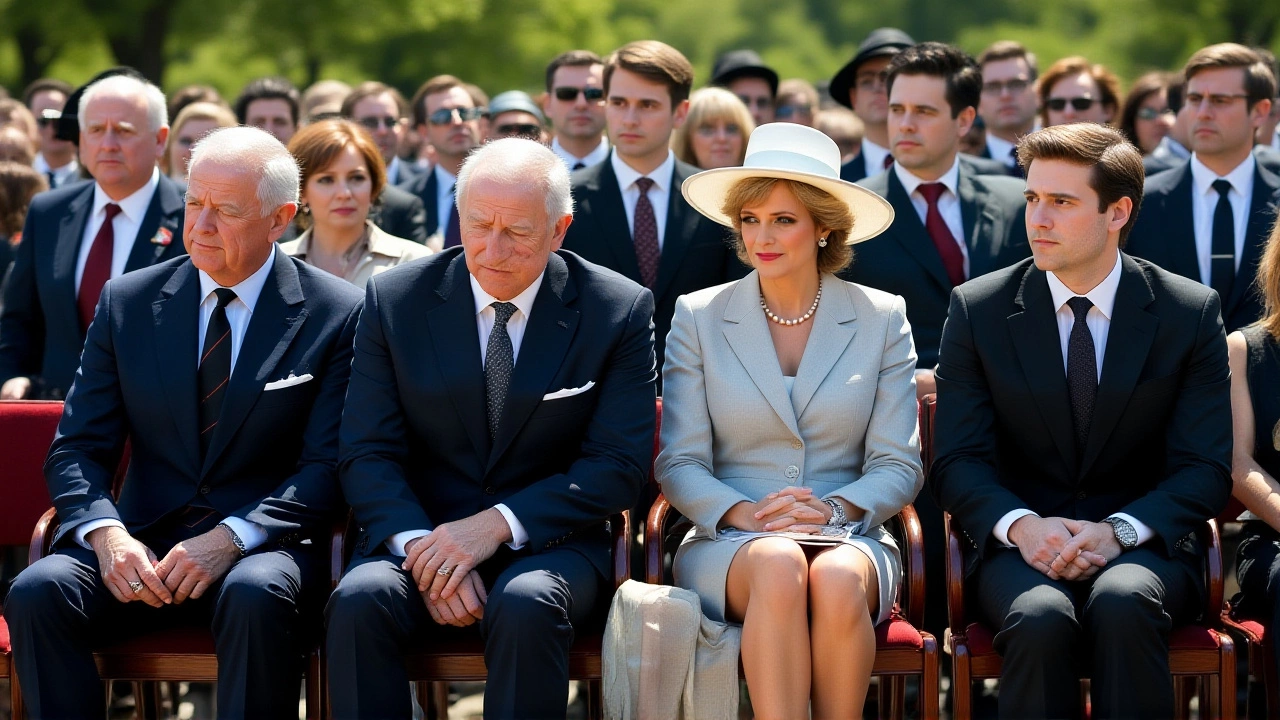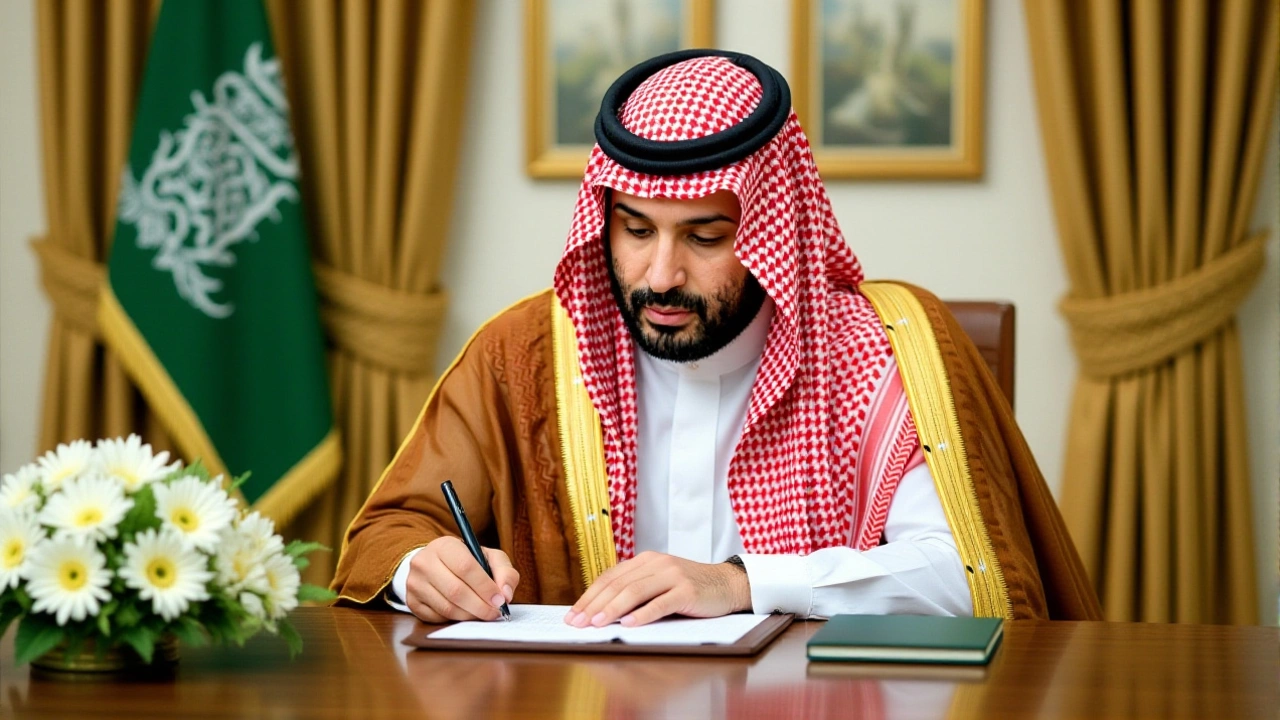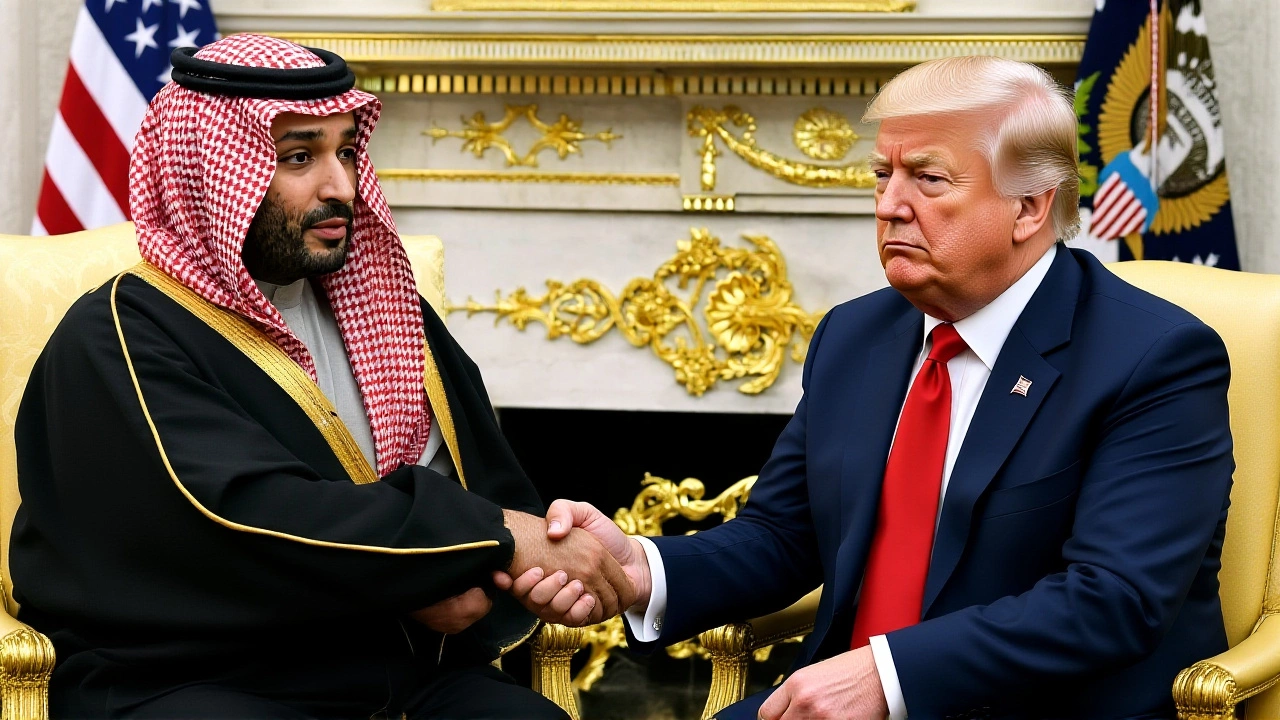Prince William Vowed to Shield Kids from Diana’s Royal Drama After 1995 Panorama Interview

- Nov, 21 2025
- 0 Comments
- Caspian Hartwell
When Prince William watched his mother, Princess Diana, confess to infidelity on live television in 1995, he wasn’t just watching a scandal unfold—he was watching his family unravel. The Panorama interview, aired on BBC on November 20, 1995, drew 22.8 million viewers in the UK. William, then 13 and a student at Eton College in Eton, Berkshire, was stunned. "He was aghast," says royal expert Fitzwilliams. "He didn’t understand why she would do it—especially not on TV, where the whole world could see it." That moment didn’t just haunt him—it rewired him. Three decades later, on the 30th anniversary of the broadcast, experts revealed that William’s entire parenting philosophy is built on avoiding the very pain he witnessed. "He made a silent vow," Fitzwilliams told Marie Claire. "No secrets. No drama. No cameras in the nursery."
From Eton to the Nursery: A Parenting Revolution
William’s childhood was defined by isolation and spectacle. At Kensington Palace, he was raised in a gilded cage—loved, but watched. His parents’ marriage, already fraying, became a tabloid circus. By the time Diana gave her interview, William had already seen his father, King Charles III, publicly criticized in the press. The interview didn’t just expose infidelity—it exposed the monarchy’s emotional bankruptcy. "It wasn’t just the words," says Kristin Contino, Senior Royal Editor at Marie Claire. "It was the fact that the world got to watch a mother and son torn apart by a system that demanded silence. William saw what happens when you bury the truth." Now, William doesn’t bury anything. In a rare 2025 interview with Brazilian presenter Luciano Huck, he admitted: "Hiding stuff from them doesn’t work." His children—Prince George (12), Princess Charlotte (10), and Prince Louis (7)—are raised with honesty, not protocol. They know their grandparents, they know their great-grandmother’s legacy, and they know their mother’s story—not as a fairy tale, but as a human one.Normalcy as a Shield
William’s approach is radical for a future king. He sends his kids to state-funded schools. He limits public appearances for Louis and Charlotte. He’s banned social media for his children under 16. When Charlotte walked into her school in London last year, no paparazzi were allowed within 200 meters. That’s not tradition—it’s rebellion. "He’s not trying to make them royalty," says Hilary Fordwich, another Marie Claire royal analyst. "He’s trying to make them people. He wants them to laugh in the playground, cry over homework, argue about chores—without wondering if the world is watching." Compare that to William’s own childhood. At 13, he was expected to smile for cameras after his mother’s emotional breakdown. At 15, he watched her funeral procession from a distance, too young to grieve openly. Harry, his younger brother, reacted with anger. William reacted with silence—and resolve.
Why This Matters Beyond the Palace Walls
This isn’t just about a prince. It’s about how power shapes parenting. The British monarchy spent decades treating emotion as a liability. William is turning that on its head. His children are growing up in a world where mental health is discussed openly, where vulnerability isn’t weakness, and where a royal can be a dad first. "The monarchy survives by adapting," says Contino. "William’s adaptation isn’t about PR. It’s about healing. He’s not just protecting his kids from the press—he’s protecting them from the trauma of being royal." His approach has already influenced public perception. A 2025 YouGov poll found that 68% of Britons under 35 believe William is "the most relatable member of the royal family." That’s not because he’s flashy—it’s because he’s real.What’s Next for the Prince and His Family?
No major public events are planned for William’s children in the near term. But the quiet revolution continues. George is expected to begin formal royal duties at 16—not because he’s forced, but because he’s prepared. Charlotte, already known for her sharp wit, is being encouraged to speak publicly on causes she cares about—climate, mental health, education. Louis, still young, is being shielded but not silenced. William’s biggest challenge? Letting them grow up without losing them to the spotlight. "He knows," says Fordwich, "that the moment they turn 18, the world will come knocking. His job now is to make sure they’re ready—not to run from it, but to walk through it with dignity."
The Legacy of Silence vs. the Future of Truth
Diana’s interview was meant to break silence. It did—but at a cost. William learned from that cost. He didn’t reject his mother’s courage; he rejected the system that forced her to use it. His children won’t have to choose between love and legacy. They’ll have both. "He’s not trying to erase the past," says Fitzwilliams. "He’s trying to make sure it doesn’t repeat."Frequently Asked Questions
How did Princess Diana’s 1995 Panorama interview affect Prince William emotionally?
At 13, Prince William was deeply shaken by his mother’s televised confessions of infidelity and loneliness. He felt betrayed by the public exposure of private pain, especially since he was still in school at Eton College. Royal experts say he internalized the trauma as proof that secrecy and spectacle destroy families, shaping his lifelong vow to never let his own children endure the same.
What specific steps has Prince William taken to protect his children’s privacy?
He has banned social media for his children under 16, limits public appearances for Prince Louis and Princess Charlotte, and enrolls them in state-funded schools with strict no-paparazzi zones. He avoids posting photos of them online and rarely discusses their personal lives—even in official interviews. His goal is to normalize their childhood, not sensationalize it.
How does Prince William’s parenting differ from how he was raised?
While William grew up under constant media scrutiny and emotional isolation—his parents’ divorce was managed as a royal crisis—he now prioritizes open communication, emotional honesty, and ordinary routines. His children are encouraged to express feelings, ask questions, and live without the fear of being turned into a headline.
Why is Prince William’s parenting style seen as revolutionary for the monarchy?
For centuries, the monarchy treated emotion as a liability. William flips that script: he treats vulnerability as strength. By speaking openly with his kids and shielding them from media exploitation, he’s not just modernizing royal life—he’s redefining what it means to be a royal parent in the 21st century.
What role did the BBC play in shaping the modern royal family’s relationship with the media?
The BBC’s 1995 Panorama interview with Princess Diana marked a turning point—it proved the media could force the monarchy into emotional accountability. In response, the royal family tightened control over access. William now sees the BBC—and all media—as a tool that can heal or harm, depending on how it’s used. His parenting is, in part, a direct countermeasure to that legacy.
How might Prince William’s approach influence the future of the monarchy?
If George, Charlotte, and Louis grow up feeling seen and supported—not exploited—the monarchy may finally shed its image as a cold, distant institution. William’s model suggests the crown’s survival depends less on tradition and more on authenticity. His children could become the first royals whose public appeal is rooted in relatability, not ritual.